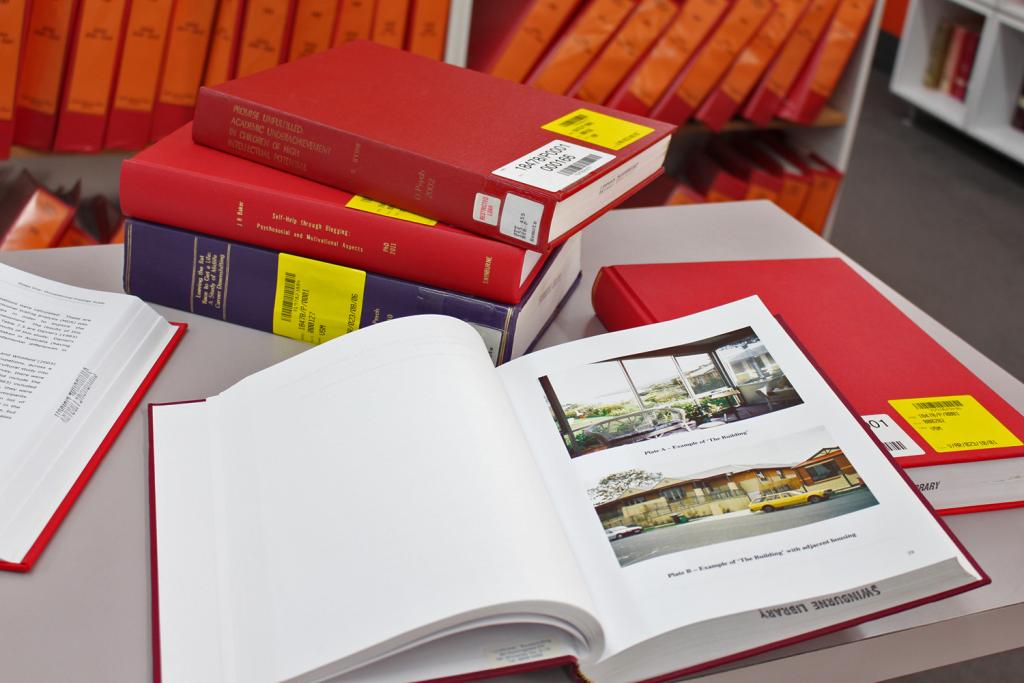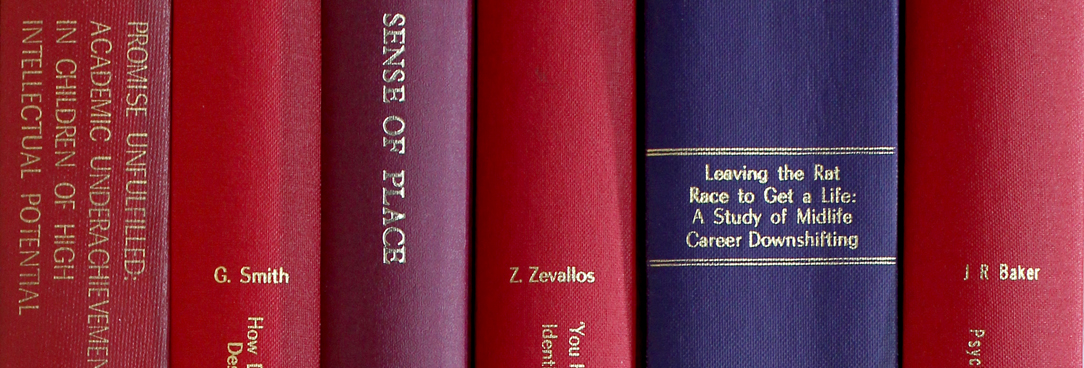
Author: Natasha Cantwell
Communications & Public Programming Officer
There’s a wealth of information within the pages of every doctoral thesis. Years of in-depth research and analysis on a single topic, consolidated into one meticulously edited book. Doctoral theses can be an amazing resource for anyone who wants to dig deep into a particular subject.
This year PROV received our first transfer of doctoral theses, which are all available for the public to view at our North Melbourne reading room. The 1014 volumes are the work of Swinburne PhD candidates from 1990 through to 2013. This includes all theses back to the time when the Swinburne University of Technology was founded in 1992, plus two theses from when Swinburne was still an Institute. They cover a broad range of topics, including psychology, physics, music and engineering. For the science-minded, you can learn about everything from micro-cracks in the pavement through to the expanse of the Milky Way.

For those interested in psychology and sociology, the collection is particularly rich. Here are a few examples:
Philomena Tan studied mid-career professionals who voluntarily opted out of financially rewarding career paths after re-evaluating their priorities in life. Through interviews and questionnaires, she examined their different experiences, looked at their reasons for downshifting and asked ‘how can the process be made more easeful?’
The idea of ‘work life balance’ is a hot topic in 2018, with companies world-wide instigating flexible working arrangements and others even a trial of 4 day working weeks. With people now asking themselves how they can avoid being trapped in the rat race before they’ve barely begun their career, it’s fascinating to think about how cultural attitudes have changed over the past 18 years. In the year 2000, downshifting meant breaking with social convention and Tan discovered that for many people, the slow process of transitioning involved periods of grief and difficulty before finding allies and finally being able to feel whole and more authentic.
James R Baker’s study of why people blog and how it effects them draws a number of conclusions which you might find surprising. It's easy to find articles in the media on the negative consequences of social media over-use and how seeking connections online can lead to neglecting connections in real life.
However, Baker’s study found that in general, the bloggers he surveyed felt that their online outlets were teaching them to better express themselves, which had a flow-on effect into their real life relationships. He noted that blogging had the therapeutic effects of diary writing, with the added benefit of sharing with a community in a safe environment. These online connections were considered by the bloggers to be meaningful and genuine, and positively impacted on their well-being.
Zuleyka Zevallos’ in-depth interviews with 50 young second-generation Australian women formed the basis of her study into the social construction of identity. Interestingly, she found that the women’s unwavering belief in Australia’s multiculturalism was at odds with their own experiences of racism and social exclusion. The title is a quote from one of the interview subjects who felt that to be fully accepted as Australian ‘you have to be Anglo and not look like me’. The majority of the women self-identified as being ‘partly-Australian’ and Zevallos’ research delves deep into the theories around how individuals construct their ethnic and cultural identities. Reading about these women’s experiences is both powerful and fascinating.
Start your own journey through the collection VPRS 18478/P1 Doctoral Theses (1990 - 2013) via our online catalogue and use the keyword search to find your subject of interest. You can view any theses in our North Melbourne reading room. To find out more about the process for ordering records to view, watch this short video.
If you're interested in reading theses from other universities, we suggest getting in touch with the university library directly.
Material in the Public Record Office Victoria archival collection contains words and descriptions that reflect attitudes and government policies at different times which may be insensitive and upsetting
Aboriginal and Torres Strait Islander Peoples should be aware the collection and website may contain images, voices and names of deceased persons.
PROV provides advice to researchers wishing to access, publish or re-use records about Aboriginal Peoples
